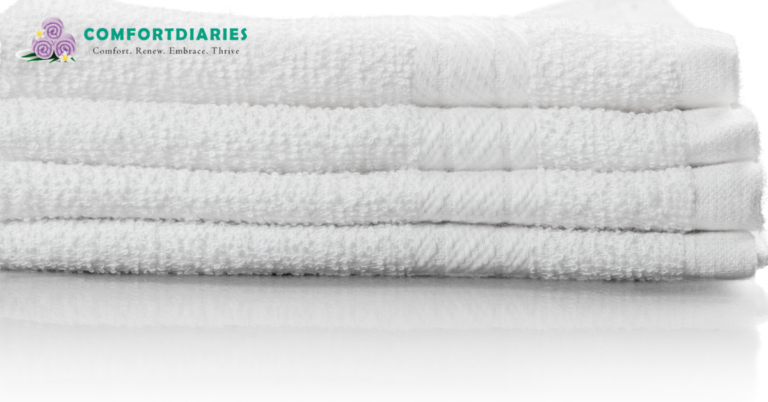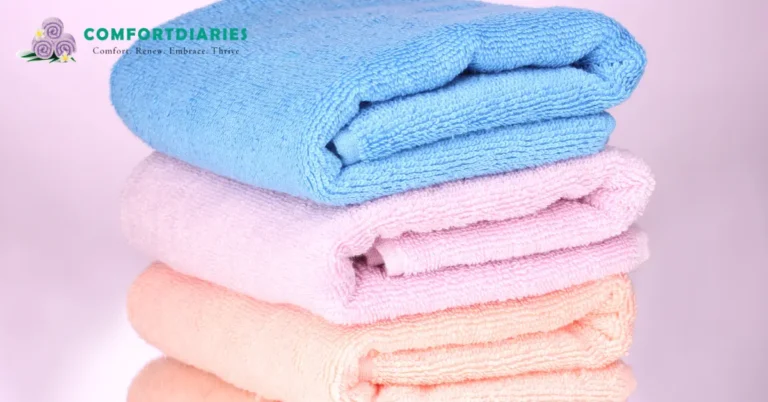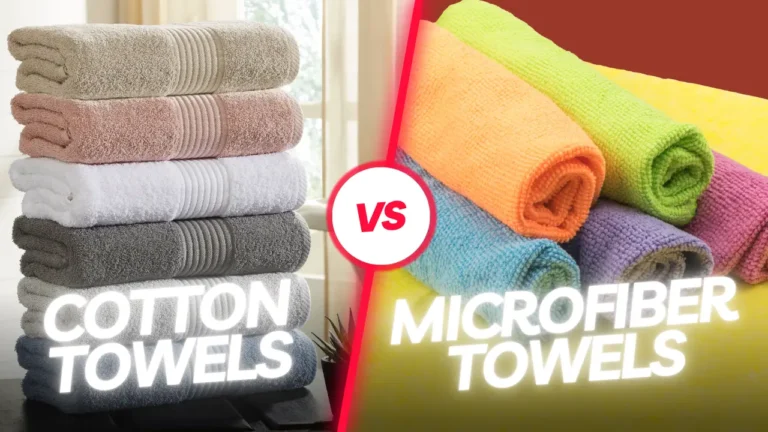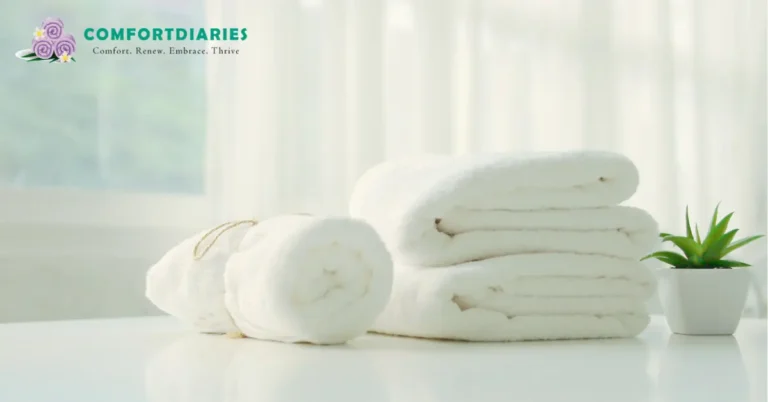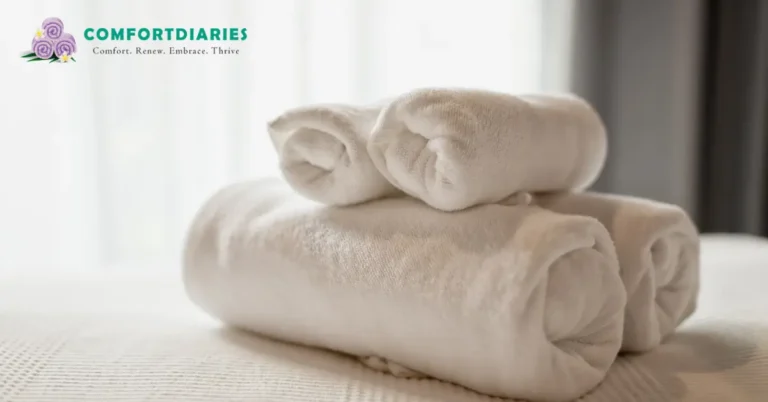How to Properly Care for Beach Towels: Washing and Storage Tips
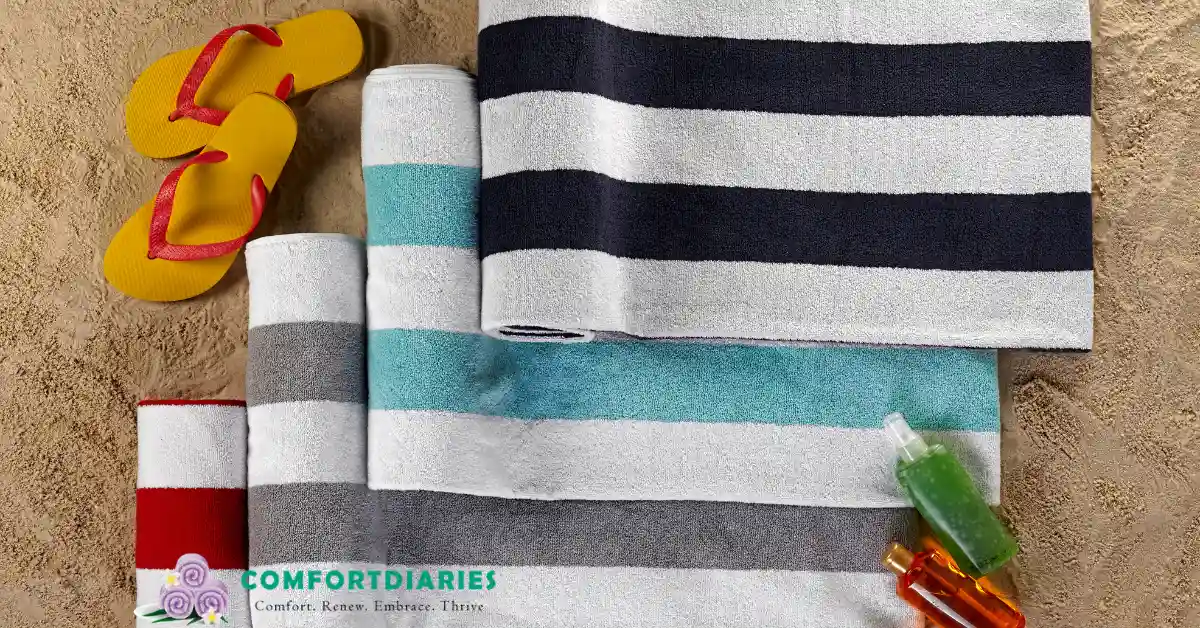
When it comes to enjoying the sun, sand and surf, a good beach towel is an essential companion. It is more than just a piece of fabric to help you dry off. It is a crucial part of your beach experience that deserves proper care. In this comprehensive guide, we are diving into the details of care for beach towels, providing you with in-depth insights on washing and storing them to keep them looking and feeling their best.
Beach towels are the unsung heroes of our summer adventures. They bear the force of the sun, salt water and sand. Despite their importance, they often do not receive the love and care they need. By following proper care and storage techniques you can extend the life of your beach towels and enjoy their soft, comfy embrace for years to come.
First Shake, Then Dry in the Sun
After a day at the beach, start by giving your towel a robust shake. This will help to remove excess sand and dirt before it has a chance to embed itself in the fabric. Then, lay the towel out in the sun to dry. The sun’s ultraviolet rays can help to kill bacteria and can also help to naturally bleach out stains. Avoid leaving your towel out too long, though, as overexposure to the sun can weaken the fibers over time.
Hang to Dry
Proper drying is essential to preventing mildew and odor in your beach towels. Hang them on a line in direct sunlight or a well-ventilated area. Never leave wet towels in your beach bag or piled on the floor. If you do not have immediate access to a line, leaving the towels spread out will suffice until they can be properly hung.
Don’t Wash After Every Use
It’s tempting to toss a towel in the laundry after each use, especially with all that sand and sunscreen clinging to it. However, unless your towel is particularly soiled, you can safely use it a few times before washing. This not only saves water and energy but also prolongs the life of the fabric.
Check the Care Label on Your Towel
Care labels exist for a reason. Before you toss your beach towel in the wash, understand what it prefers. Some towels can withstand the hot cycle, while others require more gentle care. Ignoring care instructions could lead to unsightly pilling, fading or shrinkage. Always follow the manufacturer’s recommendations for the best results.
Add Detergent – The Right Way
When it’s time to wash, use a mild detergent that’s free of bleach or fabric softeners. Bleach can weaken the fabric over time and fabric softeners can reduce the towel’s absorbence which is the last thing you want for a beach towel. Stick to a detergent specifically designed for delicates or one that’s labeled as being safe for colors and fabrics.
Avoid Harmful Chemicals
It’s common knowledge that fabric softeners and bleach harm the environment and your linens but it’s worth repeating when it comes to beach towels. These chemicals can make their way into the ocean and other water sources, potentially causing harm to marine life. Opt for eco-friendly laundry products whenever possible.
How to Store Beach Towels?
After your beach towels are dry, it is important to store them properly. Fold them neatly and place them in a cool and dry area. If your beach towels are particularly large, you may want to roll them up, which can save space and reduce wrinkles. Ensure they are not in a damp environment, as this can lead to mold and mildew growth.
How Often to Wash Beach Towels
The frequency with which you will want to wash your beach towels depends on how often you use them and how soiled they become. As a general rule of thumb, aim to wash them every three to five uses. If they start to smell or look dirty, it’s time for a wash.
Tips for Washing Beach Towels
When you do wash your beach towels, set your machine to a warm or cold water cycle. Hot water can break down the fibers and cause fading. If you are dealing with particularly stubborn stains, you can pre-treat them with a stain remover but be sure it is safe for the fabric type of your towel.
Summary:
Beach towels are more than just functional. They hold the memories of sun-soaked days and the carefree vibes of summer. By treating them with the care they deserve, you are not only ensuring their longevity but also promoting a sustainable approach to textile use. With these tips in hand, you can confidently savour every moment on the shore, knowing that your trusty towel is well looked after. So, shake, dry and store. Your towels will thank you for it!
In an increasingly eco-conscious world, proper care for the items we use becomes more important than ever. With beach towels playing a crucial role in minimizing our environmental footprint, it is our responsibility to ensure we are utilizing them to their full advantage. Tight stitching, robust fibres and vibrant colours. The marks of a well-kept towel guarantee that each piece is not just a seasonal necessity but an enduring companion for many summers to come. Now go forth and share your newly acquired knowledge with fellow beach enthusiasts, homemakers and the eco-conscious alike.
FAQS:
How Do I Remove Stains From My Beach Towels?
To successfully handle stains on your beach towels, pretreat them before the usual wash. Use a stain remover designed for the particular type of stain you are dealing with, such as one for organic matter if the towel has food or sunscreen spots. Apply the remover following the product’s instructions, then wash the towel in accordance with the care label settings.
- Pretreat stains before washing
- Use a stain remover appropriate for the towel fabric and the type of stain
- Follow both the product and towel care label instructions
Can I Use Hot Water to Wash My Beach Towels?
While hot water may seem like a good idea for cleanliness, it can actually be harmful to beach towel fibers. To keep your towels in optimal condition, stick to a warm or cold water cycle. This helps prevent fabric breakdown and color fading, ensuring that the towel remains vibrant and durable for longer use.
- Avoid using hot water
- Stick to warm or cold water cycles
- Helps prevent fiber damage and color fading
What’s the Best Way to Dry Beach Towels?
The most effective way to dry beach towels is in direct sunlight or a well-ventilated area. Sunlight naturally sanitizes and helps bleach out stains, while good air flow prevents mildew and odor. Be cautious though, not to leave the towels out too long, as UV rays can damage the fabric over time.
- Dry in direct sunlight or a ventilated area
- Don’t overexpose towels to the sun
- Prevents mildew and fabric damage
How Should I Store My Beach Towels to Avoid Mold and Mildew?
After ensuring your beach towels are completely dry, fold them neatly or roll them up to save space. Store them in a cool, dry location away from moisture. This prevents mold and mildew development, keeping your towels fresh for the next use.
- Store only completely dry towels
- Fold or roll to save space
- Keep in a cool and dry place
Is It Necessary to Iron Beach Towels?
Generally, ironing beach towels is not necessary and can even be detrimental. The heat from the iron may damage the towel’s fibers, especially if it is made from terry cloth and reduce its absorbency. If you must iron, use a low heat setting and avoid direct contact by placing a thin cloth between the iron and the towel.
- Avoid ironing beach towels
- Excessive heat can damage fibers
- If necessary, use a low heat setting and protective cloth.

